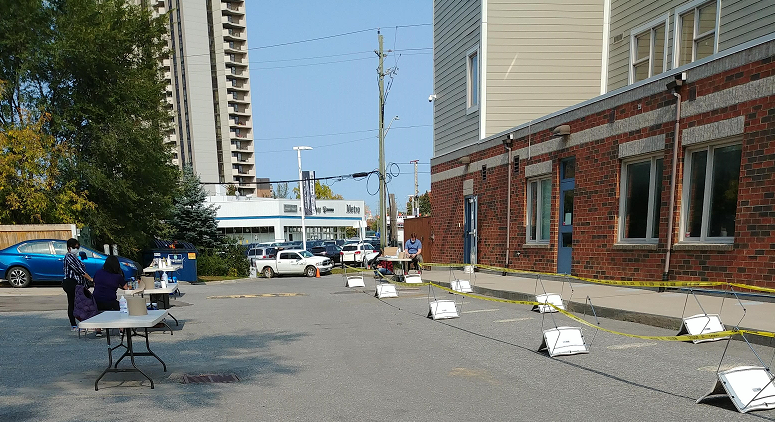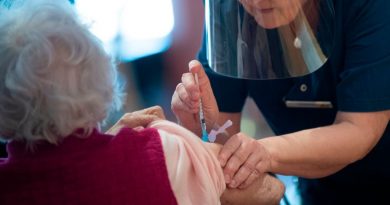Ottawa Inuit association distributes country food to 200 households

Tungasuvvingat Inuit (TI), the counselling and resource centre for Inuit in Ottawa, distributed country food from Arctic Canada to 200 households in the city during the week of September 28.
The distribution was done with Nunavut Tunngavik Inc. (NTI), the organization that represents Inuit in Canada’s eastern Arctic territory of Nunavut. NTI supplied maktaaq (whale blubber) to the country food packages. TI provided tuktu (caribou).
“Sharing free country food is a significant event for the Inuit community, from a cultural as well as a pragmatic perspective,” TI said in a news release on Monday. “In a time, such as COVID-19 where access is limited and increased food security is especially significant, the importance is magnified.
“The community response in receiving traditional foods has been overwhelming. Upon releasing the information on the TI social media pages, the website server crashed as a result of hundreds of people submitting their names in a matter of minutes to receive the food.”
Extra resources because of COVID-19
The distribution of the food was complex due to complying with public health regulations, but TI’s executive director Amanda Kilabuk said the effort was worth it.

“This is a very proud day for TI to have the ability to provide country food and lift the spirits of urban Inuk families in Ontario,” she said.
“This was not an easy endeavour to plan and prepare for due to COVID-19. Consequently, we consulted with Ottawa Public Health, by-law officers and the Ottawa Police Service to ensure that our distribution plan was COVID-19 compliant. All regulations were followed for physical distancing and sanitizing and we took extra measure to mark spaces six feet apart in the parking lots. Extra volunteers were brought in to monitor and drive through lanes were setup for ease of distribution.
“The collection of personal information was also obtained for the purpose of contact tracing. The distribution was a complete success and the gratitude from community has been amazing.”
Country food will be distributed to another 200 Inuit households in Toronto and southern Ontario later on this month.
Mamisarvik Healing Centre reopened
In other news, TI also announced last week that its Mamisarvik Healing Centre, which had shut down in March because of COVID-19 had reopened September 14.
Mamisarvik offers Inuit-specific treatment programs for men and women recovering from trauma or substance abuse. The staff switched to remote counselling after the facility was closed but is now back to in-person services.
Write to Eilís Quinn at eilis.quinn(at)cbc.ca
Related stories from around the North:
Canada: Canada’s Green Party leadership candidates debate food security and the North’s economy, CBC News
Finland: Finland’s farming sector in crisis: report, Yle News
Norway: Norway and Russia agree to slash cod quotas in Barents Sea, The Independent Barents Observer
Sweden: 2018 drought took toll on Swedish farmers’ mental and fiscal health, research says, Radio Sweden
United States: This Alaskan spice shop brings new flavors to Indigenous dishes, Alaska Public Media




How does an Inuk/Inuvialuk join this group? What is this group about? My niece lives in Ottawa and I have a nephew who lives in Timmins. How do they join and what are the benefits on joining this group?